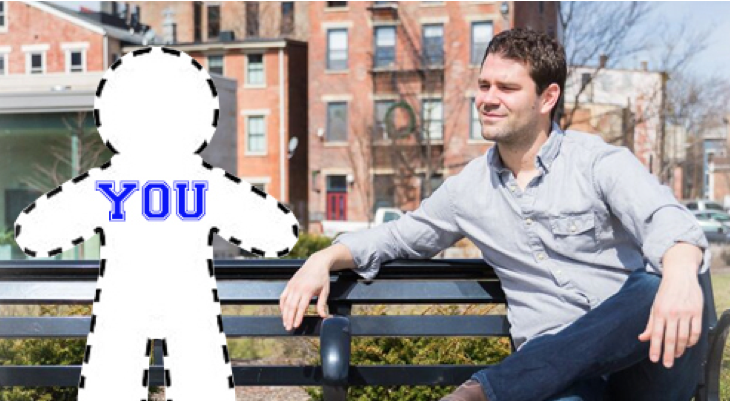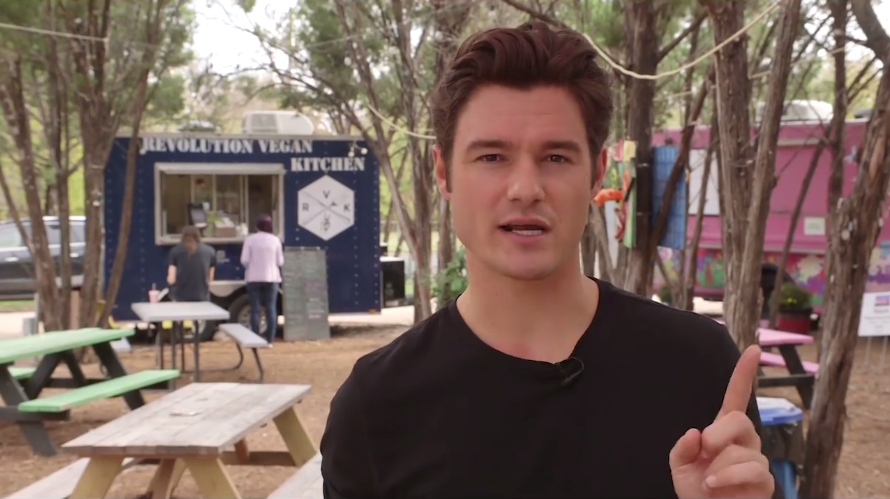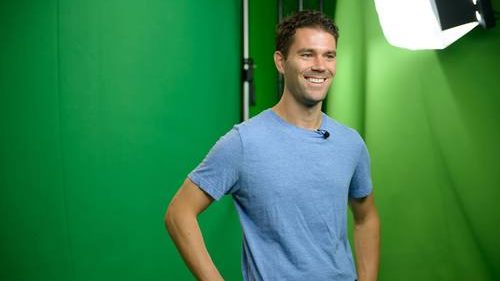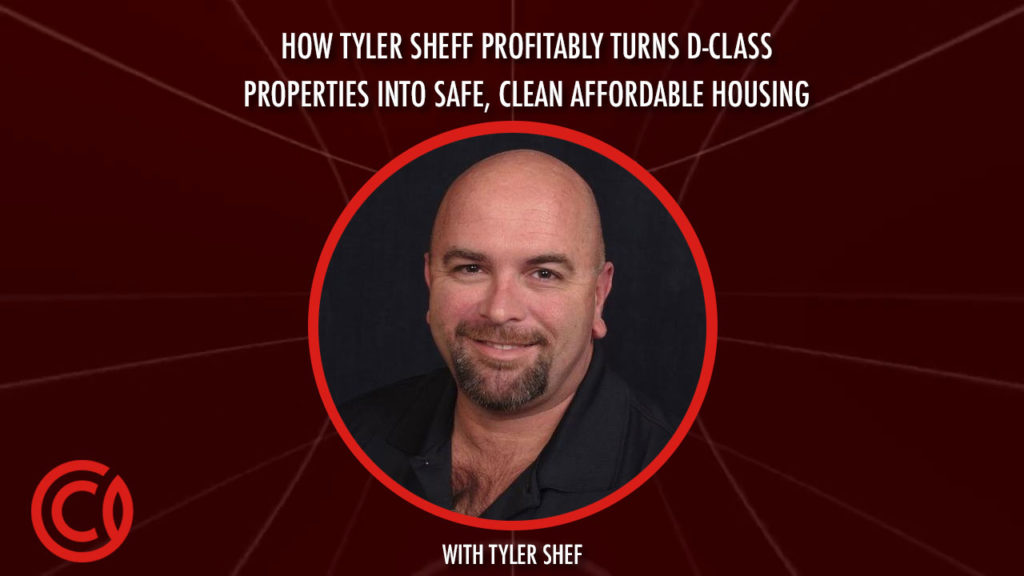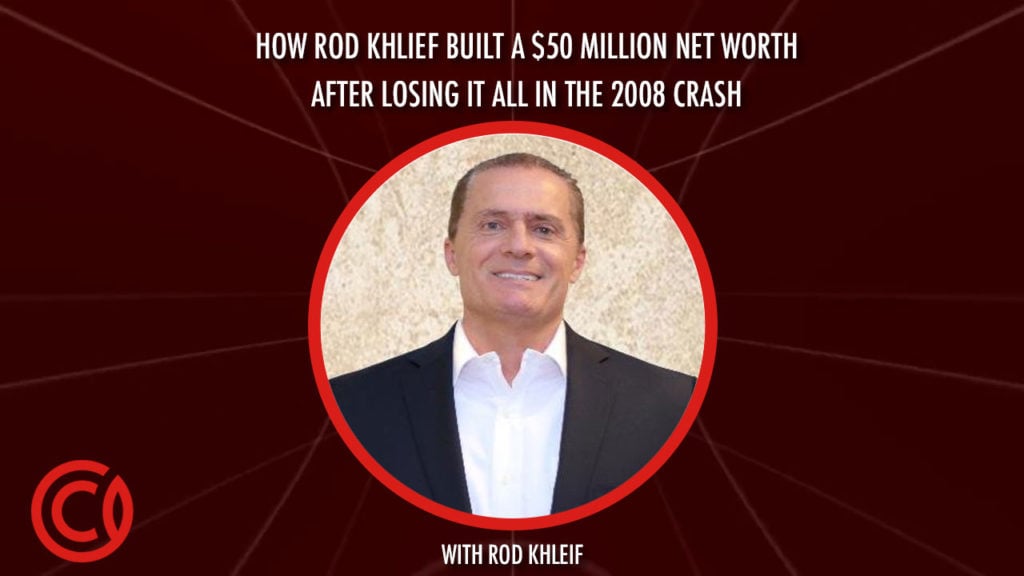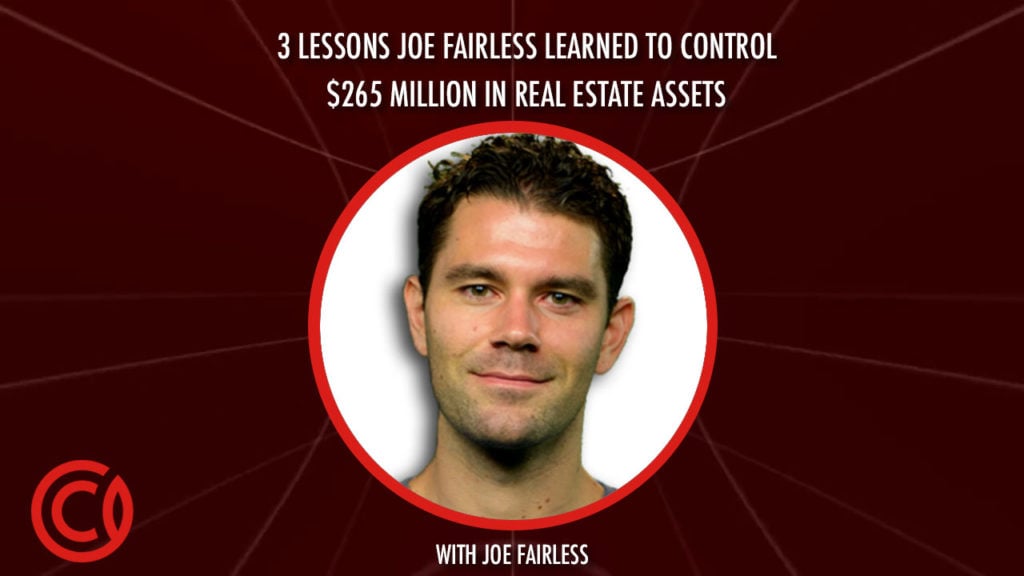Just over 10 years ago, Joe Fairless was barely making above minimum wage when he decided to pick up a copy of Investing for Dummies.
Fast-forward to today. The 35-year old real estate expert now owns more than 1,000 real estate units and holds a portfolio of $130 million.
He hosts a daily podcast titled The Best Real Estate Investing Advice Ever, bringing together the top real estate investors in the country to share knowledge and empower other investors. He wrote a book by the same name, from which he donates the profits directly to a nonprofit for underserved children in Cincinnati.
During his time with Capital Gains podcast host Jonathan Twombly, Fairless shares his own story of becoming a real estate expert and some tools he’s acquired, reinforcing confidence in his listeners that anyone can make it big in real estate with the right strategy.
Starting Out
Not too long ago, Fairless was splitting half of his Madison Avenue advertising paycheck to pay his rent, and working so much he was barely earning above the minimum wage.
Unsatisfied with working for a paycheck and for the weekend, he began reading up on the three introductory options for investing: real estate, limited liability corporations, and stocks/bonds. He chose to dive into real estate, reading more books, attending conferences and saving up to put money down on purchasing single-family homes.
At the same time, he was soon promoted to executive vice president at the agency—the youngest in the firm’s history. Yet, he started to mentally check out from his full-time job, preoccupied by the allure of real estate and the prospect of financial freedom.
Fairless dropped out of the advertising industry, which put him in a peculiar position. Even though he couldn’t get approved to purchase a single-family home, he was able to acquire a $7 million apartment building. How?
Investing Is Relationships
Despite not having much capital to his own name, Fairless raised $843,000 from 12 investors to put toward a down payment for an apartment complex.
Fairless tells Twombly that he came across these investors over the course of his life. Three were co-workers at his advertising agency, three were from his alma mater’s alumni advisory board, and the rest were a combination of flag football teammates and former roommates.
“Never burn bridges with your roommates,” Fairless chuckles.
Subscribe to the Capital Gains podcast on iTunes for more great episodes!
This down payment kick started his real estate portfolio, and began building rapport and referrals from other investors.
At the time of the Capital Gains podcast interview, Fairless had recently analyzed his investor portfolio to find 21 percent came from his investment blog; 19 percent from his alumni advisory board; 13 percent from his podcast; 3 percent from his roommates and flag football teammates; 26 percent from investor referrals; and 18 percent from individual connections he’s made with advertising agency colleagues and financial industry CFOs.
As a rule of thumb when building a team, Fairless gives clear direction to aspiring real estate entrepreneurs to only seek sponsorship from accredited investors. This includes a net worth of $1 million, and income of at least $200,000 for the past two years, or $300,000 combined income if married.
Add Value and Get Creative
Another rule of thumb Fairless follows for success in the market is always seeking to add value to the properties one acquires.
“When I first started out,” Fairless admits, “my original thought was that I want to buy something that will immediately make money.” His experience has taught him while that mentality is ineffective for increasing one’s net operating income, there is another way: a value-add mentality.
“Go in [to the real estate market],” Fairless advises, "buy properties that need work, do the work, have an internal exit, and sell later.”
Fairless encourages aspiring investors they can get creative with the ways to add value to a property. Some examples he’s found effective are adding a community garden or barbeque pit, negotiating property taxes,—even adding a “bill-back program” to the lease agreement, which allows one to charge a portion of the water bill back to a resident.
There’s Always More To Learn
After purchasing his first property, Fairless took two years to learn as much as possible about the industry before purchasing his next property, a 250-unit in Houston, Texas in August 2015. He hasn’t stopped his self-education on the real estate market, either.
“I’m always learning,” he humbly admits. “I don’t claim to be a master at it.”
By building up his podcast and book of stories from fellow successful investors, Fairless embodies and thrives off the principle that anyone can become an investor, and achieve financial freedom.
Now with a goal of earning $1 billion by the age of 40, Fairless pushes himself each day toward accomplishing this with a Tony Robbins quote in mind as his guiding principle for success to-date: “The secret to living is giving.”
MORE INVESTING ARTICLES ON CAPITALISM.COM:
• This Entrepreneur Went to Jail for Someone Else’s Tax Evasion – Now He’s Helping Others Legally Reduce Their Tax Liability
• Why Our Economy Needs ‘Decomposer’ Capitalists: Investing in Non-Performing Assets
• How Our Complex Tax System Punishes Workers, Hinders Business Growth
